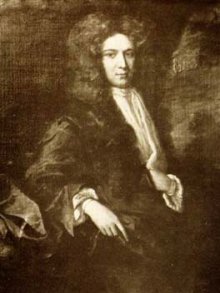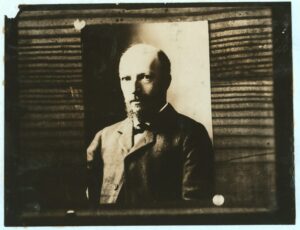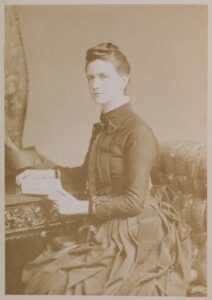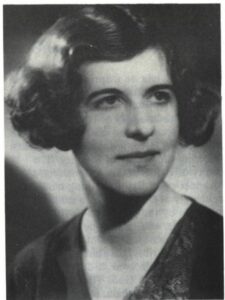

Is being rewarded for maintaining certain articles as matters of faith, and being punished, or suffering for opposing them, proper to produce a free and impartial use of our judgements, in relation to the truth or falsehood of those matters of faith?
Anthony Collins, ‘Queries concerning authority in matters of faith’ in The Independent Whig, 25 May 1720
Anthony Collins was legally trained but never practised, becoming instead a prolific writer of provocative works of freethought. His writings concerned the importance of free intellectual inquiry, as well as other matters such as free will and determinism. Collins lived during a period in which the danger of being charged with atheism was very real, requiring freethinkers to compose their works in such a way as could enable denial, and/or to publish anonymously, as Collins did. In his pursuit of truth through reason, and his devotion to the ideals of freethought, Collins remains a key figure in the development of the humanist tradition.
[Freethought is] The Use of the Understanding, in endeavouring to find out the Meaning of any Proposition whatsoever, in considering the nature and Evidence for or against it, and in judging of it according to the seeming Force or Weakness of the Evidence.
Anthony Collins, A Discourse of Free-Thinking (1713)
Anthony Collins was born in Islesworth, Middlesex on 21 June 1676, and educated at Eton College and King’s College, Cambridge. Collins was influenced by the prominent freethinkers John Toland and Matthew Tindal, both of whom he was personally acquainted with. He also developed a close friendship with philosopher John Locke, who praised Collins as one of the greatest lovers of truth he had ever known. This devotion to truth in all things – not least in matters of religion – was a central tenet of Collins’ writing and philosophy.
Collins’ works were all published anonymously, but provoked significant discussion and frequent accusations of irreligion. He used his pen to defend reason and liberty, and to challenge the ‘divine’ power of bishops. In An Essay Concerning the Use of Reason in Propositions (1707), Collins attacked the notion that religious doctrines could be beyond reason, or necessarily mysterious to the common man.
The means of obtaining truth, Collins believed, could only be freethought, a concept at the heart of his enduring scepticism and carefully reasoned philosophy. In A Discourse of Free-Thinking (1713), he defined freethought as the use of reason to establish the truth or falsity of propositions, and to properly understand them. For Collins, freethinking was a right and a responsibility, particularly indispensable in matters of religion. The work prompted responses from throughout Britain and Europe, with many accusing ‘freethinking’ as being nothing more than a euphemism for self-serving, dangerous atheism. In A Philosophical Enquiry Concerning Human Liberty (1717), he emphasised the central importance of clarity and reason in philosophical debate.
Collins’ devotion to freethought was not, as critical readers of his writings feared, a reflection of loose morals or libertinism. Rather, as J. Dybikowski has written:
…he was praised by those who knew him for his upright moral character, and as such his life was a standing reproof that freethinking was a licence for moral libertinism.
In the last decade of his life, Collins continued to write productively, in spite of ill health. In 1724, he published A Discourse of the Grounds and Reasons of the Christian Religion, a work of biblical criticism which subjected Christian arguments to characteristically close scrutiny. The controversial conclusions drew plentiful retorts.
Collins died in London on 13 December 1729, leaving behind a substantial library and a reputation as one of the defining thinkers of the 18th century.
Speaking of Collins’ exchange of letters with Samuel Clarke on the subject of the soul, nearly two centuries after their publication, T.H. Huxley wrote:
I do not think that anyone can read the letters which passed between Clarke and Collins, without admitting that Collins, who writes with wonderful power and closeness of reasoning, has by far the best of the argument… and that, in this battle, the Goliath of Freethinking overcame the champion of what was considered Orthodoxy.
This ‘Goliath of Freethinking’, wielding the weapons of reason and rigour, secured a lasting reputation as one of the 18th century’s leading freethinkers. In his devotion to following the evidence, regardless of where it led him, Collins exemplified values which remain at the heart of humanism today, and directly influenced many of his contemporaries and successors.

In order to find meaning to one’s life, one must find a meaning in the life of the [human] race. […]

He was the people’s First Minister, and this is a people’s ceremony. He wouldn’t want heavy mourning. This is a […]

…the only universal truths which exist are the fundamental laws of the mind. Philosophy, then, which is the science of […]

The actress turned campaigner and human rights activist Sylvia Scaffardi was a co-founder of The Council of Civil Liberties, along […]